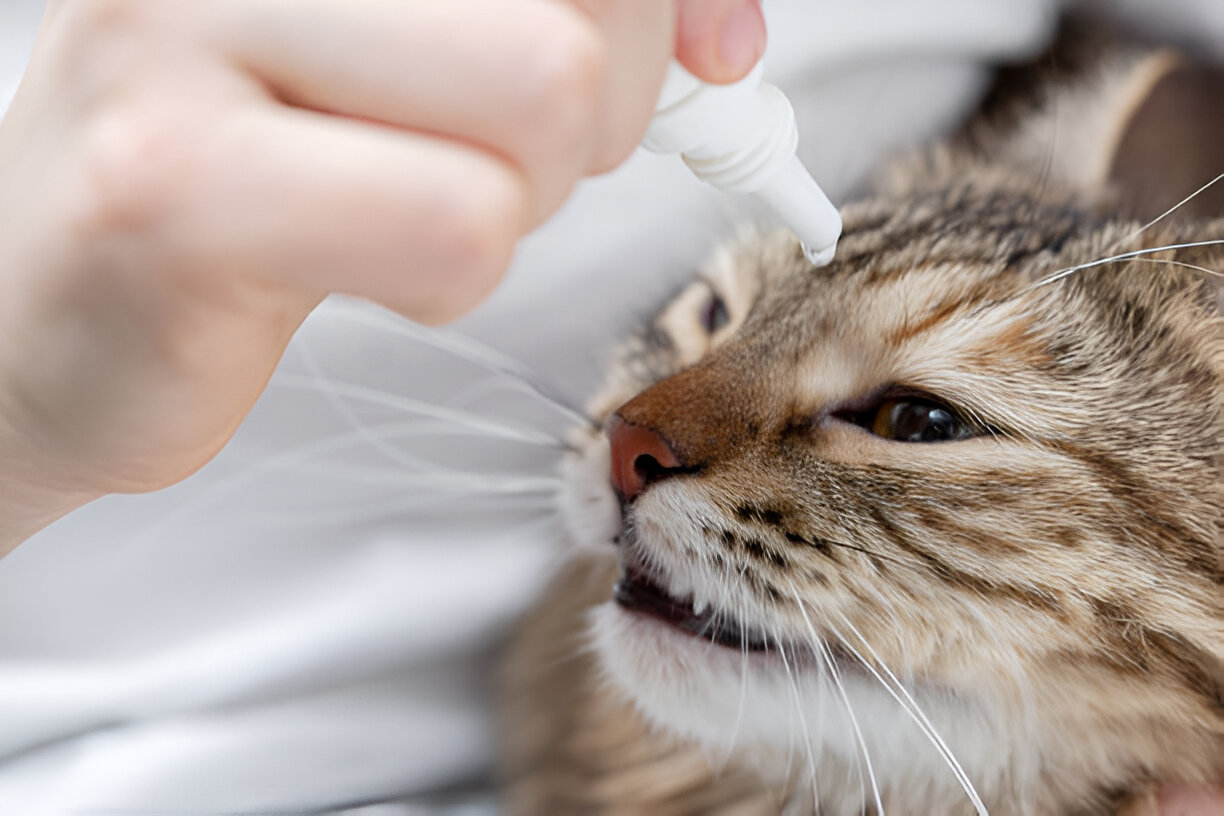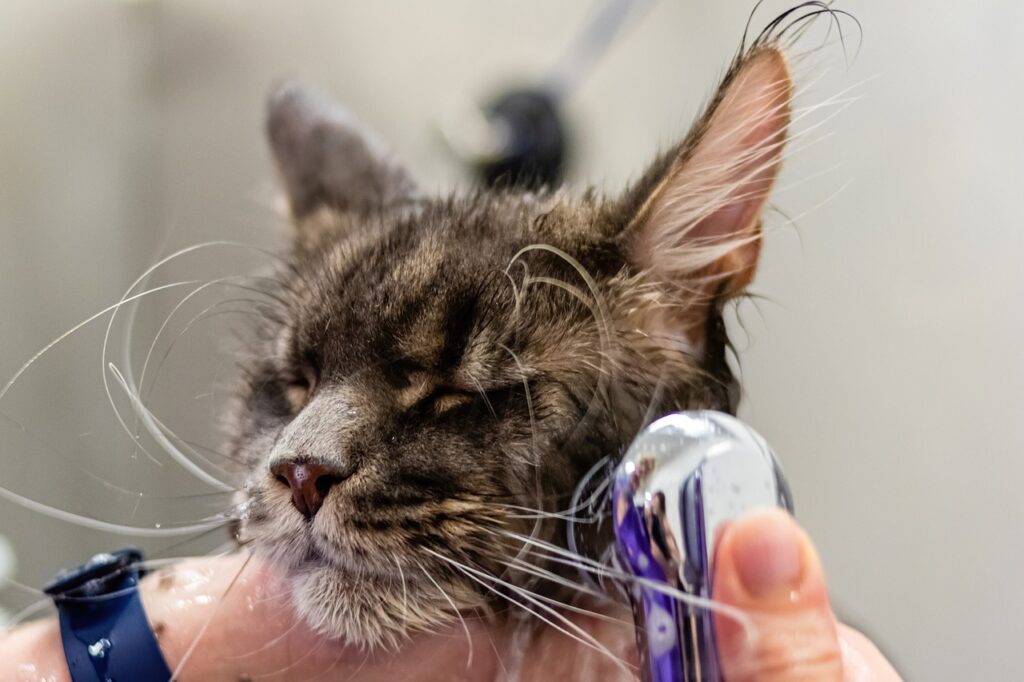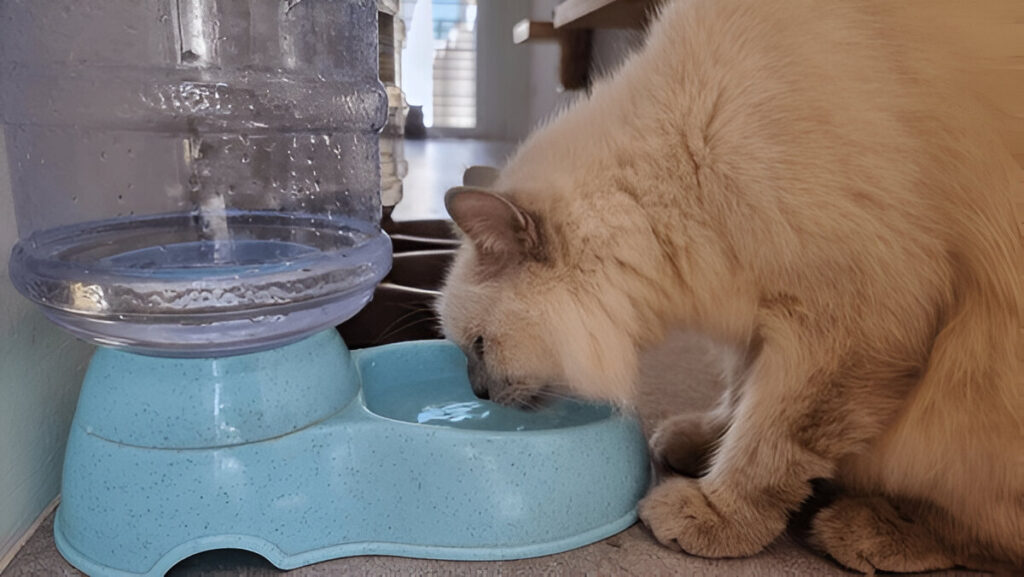Why Cat Eye Infections Matter (And What You’ll Learn)
home remedies for cat eye infection
Did you ever notice your furry companion squinting, pawing at his eyes, or with redness in the corners of his eyes? These could be signs of an eye infection a fairly common but serious feline condition. While it’s easy to dismiss these signs as mere irritations, eye infections that are not treated can complicate into corneal ulcers or even blindness if left untreated.
The good news? Many mild cases of feline eye infections can be managed at home with simple, natural remedies. But before diving into DIY solutions, it’s crucial to understand what causes these infections, how they manifest, and when professional veterinary care is necessary.
In this comprehensive guide, we’ll explore:
- The most common causes and symptoms of cat eye infections.
- 10 vet-approved home remedies that are safe and effective.
- How to call your vet in an emergency.
- Professional guidance on preventing further eye complications in your pet.
By the end of this article, you’ll feel confident in identifying and treating your cat’s eye problems while knowing exactly when to call the vet. Ready to give your kitty the gift of clear, healthy eyes? Let’s get started!
Understanding Cat Eye Infections: Causes and Symptoms

Prior to delving into treatments, let’s break down what causes cat eye infections and how to get the warning signs early.
Common Causes
Eye infections in cats can be caused by a number of factors, including:
- Bacterial Infections: Typically caused by bacteria entering the eye due to scratches or foreign objects.
- Viral Infections: Feline herpesvirus and calicivirus are the culprits most often.
- Allergies: Environmental allergens like pollen or dust mites can cause eye irritation.
- Trauma or Injury: Scratches from fighting or accidental injury.
- Conjunctivitis: Inflammation of the conjunctiva, often with secondary disease.
As noted by the American Veterinary Medical Association (AVMA), 30% of all feline disease involves ocular involvement, highlighting the importance of early diagnosis and treatment.
Key Symptoms
How do you know when your cat has an eye infection? Look for these telltale signs:
- Excessive tearing or discharge (clear, yellow, or green).
- Redness or swelling of the area around the eyes.
- Squinting or keeping one eye partially closed.
- Pawing or rubbing at the affected eye.
- Cloudiness or changes in the eye’s appearance.
If your cat demonstrates any of these, keep them under close observation. Increasing or persistent symptoms are reason to take them in to the vet.
10 Safe and Effective Home Remedies for Cat Eye Infections
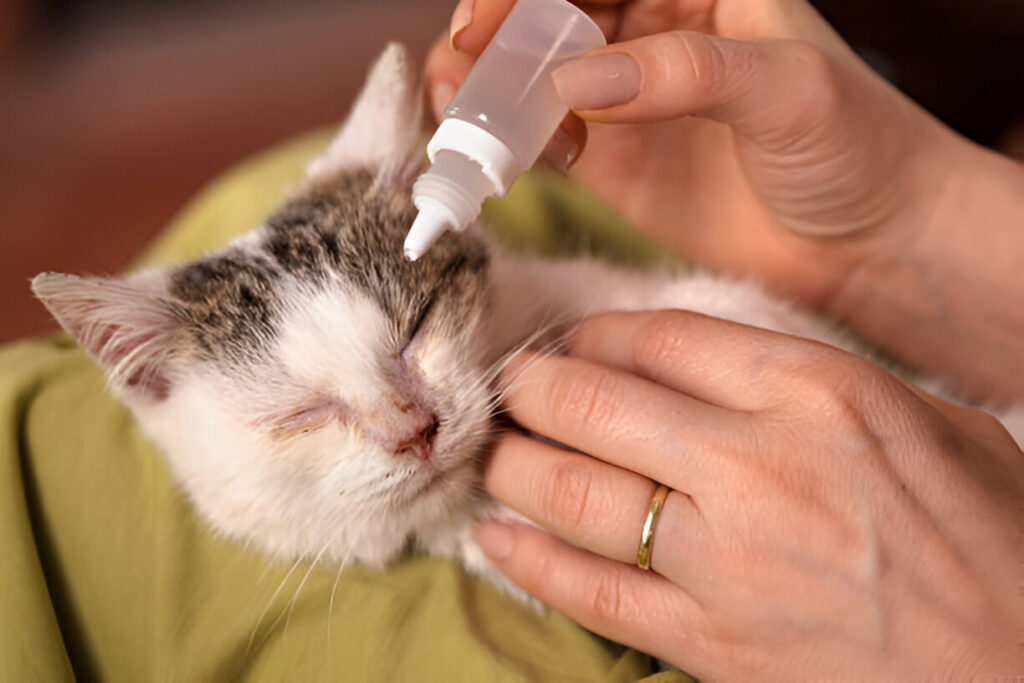
When caught early, many mild eye infections can be treated at home using natural remedies. Always ensure your hands are clean before handling your cat’s eyes, and avoid anything that might cause further irritation. Here are 10 tried-and-true options:
1. Saline Solution
A sterile saline solution is a gentle way to flush out debris and reduce irritation. Mix 1 teaspoon of salt in 1 cup of distilled water, boil it, then cool completely before use. Use a cotton ball to gently wipe away discharge.
2. Chamomile Tea Compress
Chamomile has anti-inflammatory properties that soothe irritated eyes. Steep a chamomile tea bag in hot water, let it cool, and apply the damp tea bag to your cat’s eye for a few minutes.
3. Coconut Oil
Rich in antimicrobial properties, coconut oil can help combat bacterial infections. Apply a tiny amount (about the size of a grain of rice) around the outer edges of the eye—not directly on the eyeball.
4. Warm Compress
A warm compress helps loosen crusty discharge and reduces swelling. Soak a clean cloth in warm water, wring it out, and hold it against your cat’s eye for 5–10 minutes.
5. Aloe Vera Gel
Pure aloe vera gel contains soothing compounds that may alleviate inflammation. Dilute it with water (1 part aloe to 3 parts water) and dab it lightly around the eye.
6. Green Tea Rinse
Green tea is packed with antioxidants and antibacterial agents. Brew a weak tea, cool it thoroughly, and use it as a rinse to cleanse the eye area.
7. Colloidal Silver
This natural antimicrobial agent is often recommended for pets. A drop or two applied carefully to the corner of the eye can fight off bacteria without stinging.
8. Eucalyptus Oil Vapor
For respiratory-related eye infections, eucalyptus oil vapor can open nasal passages and reduce eye pressure. Add a few drops to a bowl of hot water and let your cat inhale the steam from a safe distance.
9. Apple Cider Vinegar Spray
Diluted apple cider vinegar (1 tablespoon per cup of water) makes an excellent disinfectant spray for cleaning the area around your cat’s eyes. Avoid direct contact with the eyeball.
10. Probiotics
Boosting your cat’s immune system can aid recovery. Consider adding probiotic supplements to their diet to support overall health.
When to See a Veterinarian
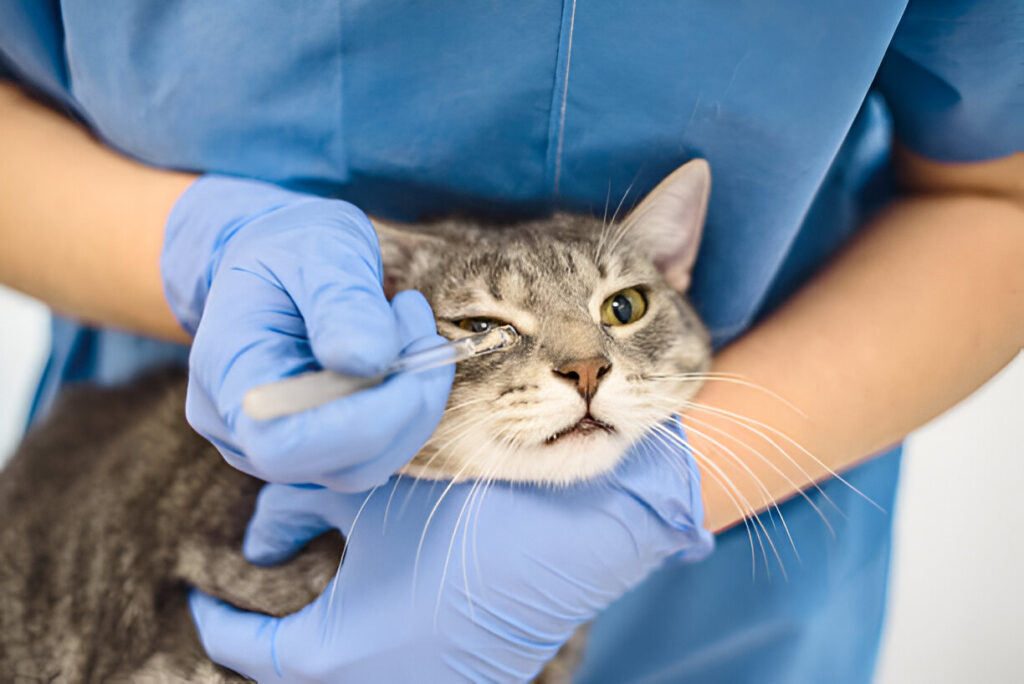
While home remedies can work wonders for mild cases, some situations require professional intervention. Seek veterinary care immediately if:
- Your cat’s eye appears cloudy or has visible ulcers.
- There’s significant swelling or bleeding.
- The condition persists despite treatment for more than 48 hours.
- Your cat seems lethargic or uninterested in food.
A study published in the Journal of Feline Medicine and Surgery found that delayed treatment increases the risk of permanent damage by up to 60%. Don’t gamble with your cat’s vision err on the side of caution.
Preventing Future Eye Infections
Prevention is always better than cure. Follow these expert-recommended strategies to keep your cat’s eyes healthy:
- Keep their living environment clean and free of irritants.
- Schedule regular vet check-ups to catch issues early.
- Ensure vaccinations are up-to-date to prevent viral infections.
- Trim hair around the eyes to prevent irritation.

Conclusion: Empower Your Cat’s Health Journey
Caring for your cat’s eyes doesn’t have to be daunting. With the right knowledge and tools, you can address minor eye infections safely and effectively at home. Remember, prevention and vigilance are key to ensuring your feline friend enjoys a lifetime of clear vision and comfort.
Now it’s your turn! Which of these remedies will you try first? Or do you have another trick up your sleeve? Share your thoughts and experiences in the comments below—and don’t forget to share this article with fellow cat lovers who might benefit from it. Together, we can create a healthier world for our beloved pets!
Yuns Legdm is a passionate advocate for pet care and the founder of this website, dedicated to providing valuable information for fellow pet lovers and veterinary professionals worldwide. With a deep love for animals, Yuns created this platform to connect passionate pet owners with expert insights from veterinarians around the globe.
This website grows with you—the passionate pet owners and veterinary experts—creating a trusted space where knowledge, experience, and love for animals come together. Whether you’re seeking advice on pet health, nutrition, or general well-being, this platform is here to support you on your journey of responsible and loving pet care.

